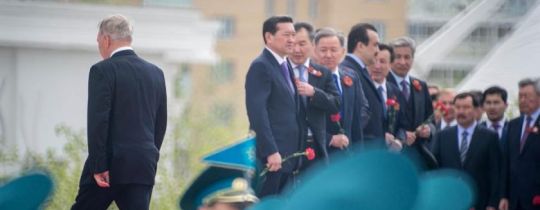As we demonstrate in “Nazarbayev’s Pyrrhic Victory and the State Policy Failure”, there are currently no drivers to stimulate and strongly influence the Kazakhstan economy and these drivers are unlikely to appear any time soon. With what, then, Kazakhstan must live at present?
In the first article of the series, we argued that preserving the current state policy would lead to a collapse of Nazarbayev’s political system. It will happen because the very foundation of the existing system lies in a tacit agreement between the ruling elite and the Kazakh citizens.
The arrest of the former deputy head of the presidential administration of Kazakhstan, Baglan Maylybaev, for the disclosure of government secrets, had caused an explosive effect in the country. For the first time, a government official of such high- rank, has been arrested for a political crime. Moreover, he was not an ordinary government official for that matter, but one who for the longest time, was almost solely responsible for the implementation of all ideological and domestic policy work in the republic. This fact alone calls for a detailed analysis of a nature and results of his work.
The Kazakhstan banking circles vividly discuss a possible merger between Halyk Bank and Kazkommertsbank. Supposedly, it will happen before the end of this year. So far, neither of the banks has released any official information. So, at the moment, we are unable to analyze the details of the transaction and its possible outcomes. Therefore, in this article, we will limit ourselves to investigating the reasons for this merger and the personae behind it.
The citizens of Kazakhstan are enduring yet another critical period of their country’s history. We can see it from the mere fact that the 25th anniversary of Kazakhstan’s independence was celebrated officially but not publicly and was overshadowed by many unpleasant incidents.
The reign of President Nazarbayev is ending. Everyone in Kazakhstan realizes it now. To see that, one only needs to look at the last year discussion in the Kazakh press and the Internet. The discussion was about a possible Nazarbayev’s successor(s) and how the state regime could (should) change after the so called “leader of the nation” parts from this life. What is more, on the background of Islam Karimov’s death and all the related internal political events in the neighboring Uzbekistan, this discussion took an especially topical turn.






